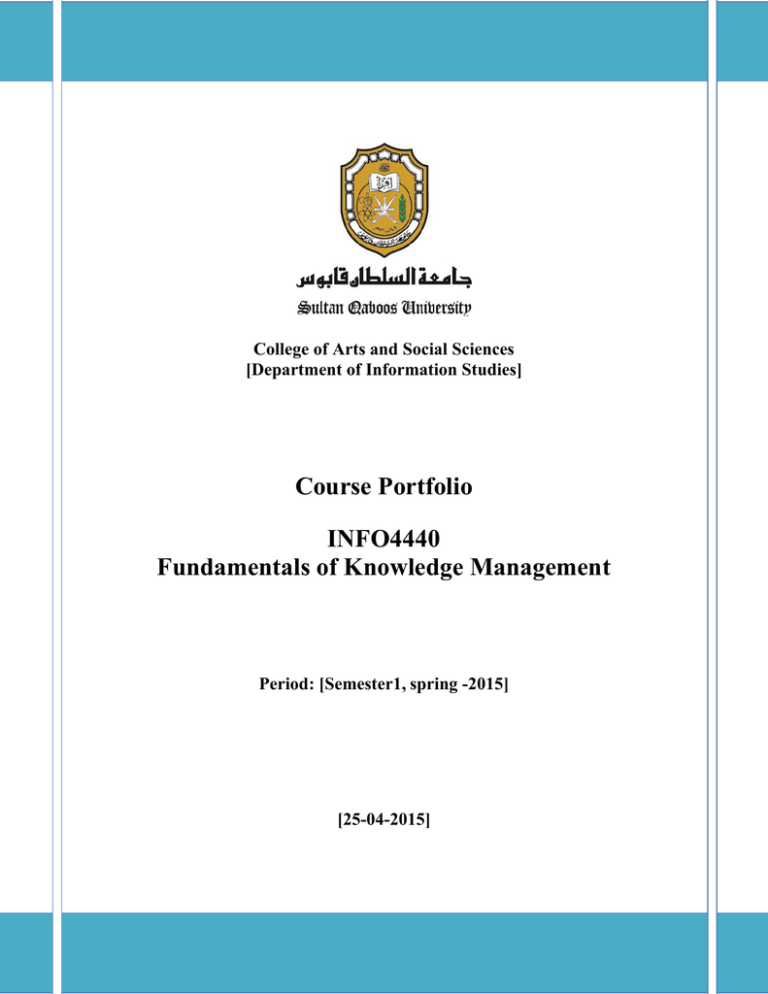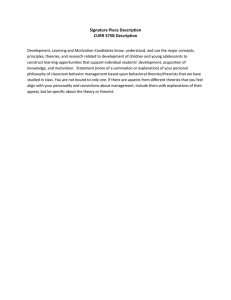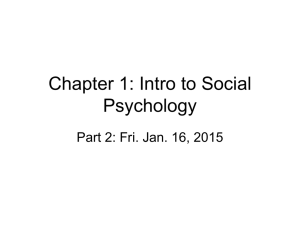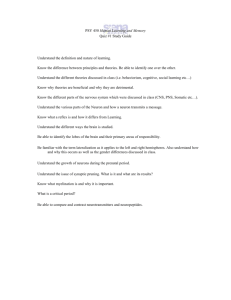
College of Arts and Social Sciences
[Department of Information Studies]
Course Portfolio
INFO4440
Fundamentals of Knowledge Management
Period: [Semester1, spring -2015]
[25-04-2015]
Course File
I. COURSE FILE SUMMARY
1. COURSE INFORMATION
College/Institute/Centre
COLLEGE OF ARTS AND SOCIAL SCIENCES
Department
Information Studies
Program Title
BA
Semester\Year
Spring, 2015
Program Code
English
Arabic
Course Code
Fundamentals of Knowledge
Management
INFO4440
Course Type
Major Requirements
Pre Requisites
No Pre Requisites
Teaching Language
Arabic
Credit Hours
3 Hours
Lecture
Course Title
Teaching Hours
Teaching Weeks
3 (Weekly)
أساسيات إدارة المعرفة
Total
3
30
Number of students
Lecture
Practical/Fieldwork
Number of Student dropped
30
-
1
2. COURSE DESCRIPTION
ENGLISH COURSE DESCRIPTION
ARABIC COURSE
DESCRIPTION
This course is an introduction to the fundamental concepts of
knowledge management (KM). The aim of the course is to give
students a set of frameworks and concepts that can be used to
manage individual and organizational knowledge. The contents of
the course includes theories and basic concepts on knowledge
management, different types of knowledge and KM,
an
important of such models in KM, procedures of KM including
knowledge identifying, acquiring, restoring, retrieving,
transferring, using, and theories and methods on knowledge
innovation and evaluation of KM.
3. COURSE AIM
The main aims of the course are to prepare students to become familiar with the current theories,
practices, tools and techniques in knowledge management (KM), and to assist them in pursuing a
career in the information field.
4. COURSE OBJECTIVES
Understand the basic concepts in studying knowledge and its creation, acquisition,
representation, dissemination, use and re-use, and management
Identify the components of knowledge management and their functions
Assess the function, purpose, use, and employment of knowledge in information
organizations and resource learning centers, and study the typical barriers that
KM aims to overcome
Understand the intermediate concepts, role, methods, techniques, and tools for
computer support of knowledge management
5. COURSE INTENDED LEARNING OUTCOMES
By the end of the course students should be able to:
Demonstrate an understanding of knowledge management in Information Institutions
including libraries, archives and information centers; and have theoretical
understanding of the fundamental principles, concepts and challenges
underlying knowledge management issues.
Identify the technologies and tools that Information Institutions use in the
management of knowledge.
Demonstrate an understanding of knowledge management theories.
Critically evaluate current trends in knowledge management and their manifestation
in libraries, archives and information centers
2
6. LECTURES SCHEDULE
WEEK
TOPIC
Course Outline and Descriptions
1
Introduction to Knowledge
2
Knowledge concept
Type of knowledge
Knowledge society
3-5
Fundamental Concepts and Theories in Knowledge Management
An Overview of Knowledge Management
Knowledge Management Models
Technology and Knowledge Management
Organizational Memory
Internal and external knowledge within an organization
Knowledge Management Development and Design Methodologies
6-8
Managing organizational knowledge, learning and intellectual capital
Knowledge Management Strategies
9-10
11-12 Knowledge Management Tools and Technologies
Critical Issues in Knowledge Management
13
Emerging Trends in Knowledge Management
14
Review and assessment
15
Final examination
16-17
7. TEACHING STRATEGIES AND TECHNOLOGY APPLICATION
Teaching Method
Lecture by teacher
Class discussion
Discussion groups
Presentation by instructors or students
Bulletin boards
Library research on topics or problems
Social Media
Class Brainstorm
Case studies
Teaching Media
PowerPoint
Slide share application
Educational video resources (e. g,
YouTube)
8. GRADING AND ASSESSMENT
POINTS
15
45
15
10
WRITTEN
ORAL
TERM PAPER
CONTINUOUS
Mid-term Exam
Final Exam
Assignment 1
Assignment 2
Classroom
Participation
15
3
9. COURSE RULES
Attendance
Attendance at class is mandatory. Course Instructors should keep attendance records. An
"absentee warning notice" will be issued if a student is absent for:
• More than 10% in courses with less than 75 total contact hours.
• More than 5% in courses with 75 or more total contact hours.
An "absentee withdrawal notice" will be issued and the student will be deemed to have
withdrawn from the course with an 'FW' grade if a student is absent for:
• More than 20% in courses with less than 75 total contact hours.
• More than 15% in courses with 75 to 150 total contact hours.
• More than 10% of total contact hours for courses with more than 150 total
contact hours.
10. INSTRUCTIONAL MATERIALS
Benbya, H. (2008). Knowledge management systems implementation: Lessons from the
Silicon Valley. Hind Benbya, KNOWLEDGE MANAGEMENT SYSTEMS
IMPLEMENTATION: LESSONS FROM THE SILICON VALLEY, Neal-Schuman
Publishers.
Bhatt, G. D. (2001). Knowledge management in organizations: examining the interaction
between technologies, techniques, and people. Journal of knowledge management,
5(1), 68-75.
Brooking, A. (1998). Corporate memory: Strategies for knowledge management.
International Thomson Publishing.
Chen, C. J., & Huang, J. W. (2009). Strategic human resource practices and innovation
performance—The mediating role of knowledge management capacity. Journal of
Business Research, 62(1), 104-114.
Choo, C. W., & Bontis, N. (Eds.). (2002). The strategic management of intellectual
capital and organizational knowledge. Oxford University Press.
Dalkir, K. (2013). Knowledge management in theory and practice. Routledge.
Desouza, K., & Paquette, S. (2011). Knowledge Management: An Introduction. New
York, NY: Neal-Schuman Publishers, Inc
Dieng, R., Corby, O., Giboin, A., & Ribiere, M. (1999). Methods and tools for corporate
knowledge management. International journal of human-computer studies, 51(3),
567-598.
Earl, M. (2001). Knowledge management strategies: Toward a taxonomy. Journal of
management information systems, 18(1), 215-233.
Fuller, S. (2012). Knowledge management foundations. Routledge.
Geisler, E., & Wickramasinghe, N. (2009). Principles of knowledge management. Theory,
practice, and cases. ME Sharpe, New York.
Hislop, D. (2013). Knowledge management in organizations: A critical introduction.
Oxford University Press.
Ichijo, K. (2006). Knowledge Creation and Management: New Challenges for Managers:
New Challenges for Managers. Oxford university press.
Kulkarni, U. R., Ravindran, S., & Freeze, R. (2007). A knowledge management success
4
model: Theoretical development and empirical validation. Journal of management
information systems, 23(3), 309-347.
Lee, H., & Choi, B. (2003). Knowledge management enablers, processes, and
organizational performance: an integrative view and empirical examination.
Journal of management information systems, 20(1), 179-228.
Lee, K. C., Lee, S., & Kang, I. W. (2005). KMPI: measuring knowledge management
performance. Information & Management, 42(3), 469-482.
Maier, R. (2002). Knowledge management systems: Information and communication
technologies for knowledge management. Springer-Verlag New York, Inc..
Maier, R. (2007). Knowledge management systems: Information and communication
technologies for knowledge management. Springer Science & Business Media.
Newell, S., Robertson, M., Scarbrough, H., & Swan, J. (2009). Managing knowledge
work and innovation. Palgrave Macmillan.
Prusak, L. (2001). Where did knowledge management come from?. IBM systems journal,
40(4), 1002-1007.
Robbins, S. P., DeCenzo, D. A., & Gao, J. (2007). Fundamentals of management.
Pearson Prentice Hall.
Rubenstein-Montano, B., Liebowitz, J., Buchwalter, J., McCaw, D., Newman, B.,
Rebeck, K., & Team, T. K. M. M. (2001). A systems thinking framework for
knowledge management. Decision support systems, 31(1), 5-16.
Ruggles, R. (2009). Knowledge management tools. Routledge.
Sanchez, R., & Heene, A. (1997). Strategic learning and knowledge management. John
Wiley & Sons, Inc..
Wong, K. Y., & Aspinwall, E. (2006). Development of a knowledge management
initiative and system: A case study. Expert Systems with Applications, 30(4), 633641.
Attachments
II.
III.
IV.
V.
VI.
VII.
VIII.
LECTURES
LECTURE NOTES/HAND-OUTS
EXAMS SAMPLE
A SAMPLE OF STUDENTS’ ANSWERS
A SAMPLE OF EXERCISES AND STUDENTS’ ANSWERS
A SAMPLE OF ASSIGNMENTS AND STUDENTS’ ACTIVITIES
RESULTS AND GRADES
5






